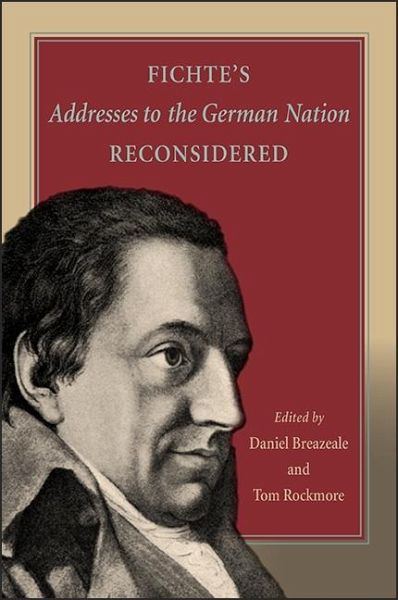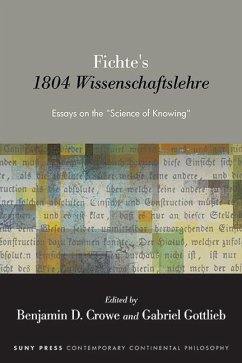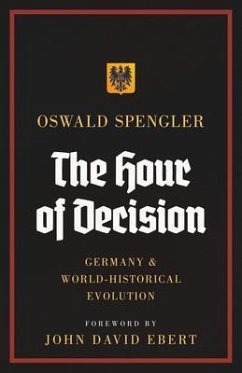
Fichte's Addresses to the German Nation Reconsidered (eBook, ePUB)

PAYBACK Punkte
14 °P sammeln!
Essays on one of Fichte's best known and most controversial works.One of J. G. Fichte's best-known works, Addresses to the German Nation is based on a series of speeches he gave in Berlin when the city was under French occupation. They feature Fichte's diagnosis of his own era in European history as well as his call for a new sense of German national identity, based upon a common language and culture rather than "blood and soil." These speeches, often interpreted as key documents in the rise of modern nationalism, also contain Fichte's most sustained reflections on pedagogical issues, includin...
Essays on one of Fichte's best known and most controversial works.
One of J. G. Fichte's best-known works, Addresses to the German Nation is based on a series of speeches he gave in Berlin when the city was under French occupation. They feature Fichte's diagnosis of his own era in European history as well as his call for a new sense of German national identity, based upon a common language and culture rather than "blood and soil." These speeches, often interpreted as key documents in the rise of modern nationalism, also contain Fichte's most sustained reflections on pedagogical issues, including his ideas for a new egalitarian system of Prussian national education. The contributors' reconsideration of the speeches deal not only with technical philosophical issues such as the relationship between language and identity, and the tensions between universal and particular motifs in the text, but also with issues of broader concern, including education, nationalism, and the connection between morality and politics.
One of J. G. Fichte's best-known works, Addresses to the German Nation is based on a series of speeches he gave in Berlin when the city was under French occupation. They feature Fichte's diagnosis of his own era in European history as well as his call for a new sense of German national identity, based upon a common language and culture rather than "blood and soil." These speeches, often interpreted as key documents in the rise of modern nationalism, also contain Fichte's most sustained reflections on pedagogical issues, including his ideas for a new egalitarian system of Prussian national education. The contributors' reconsideration of the speeches deal not only with technical philosophical issues such as the relationship between language and identity, and the tensions between universal and particular motifs in the text, but also with issues of broader concern, including education, nationalism, and the connection between morality and politics.
Dieser Download kann aus rechtlichen Gründen nur mit Rechnungsadresse in A, D ausgeliefert werden.













